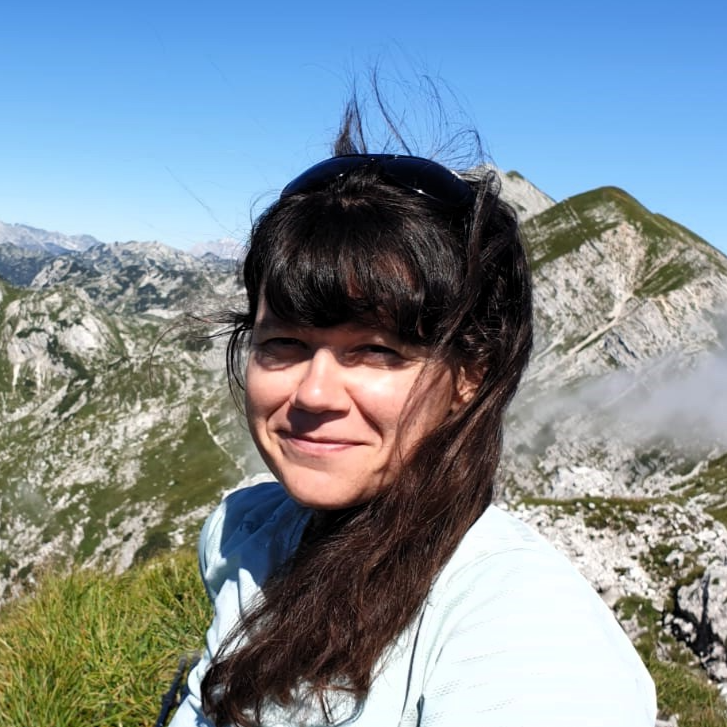
Mateja Mlinar
As researchers and training providers, we have indirect influence on the lives of children through education of ECEC professionals.Country: Slovenia
Job title: Researcher
Organization: Educational Research Institute
Sector: Early Childhood Education
Years of experience in her role: 7 years
In this interview, Mateja Mlinar, Researcher from the Educational Research Institute in Slovenia, highlights her experience from the in-person Embracing Diversity training of trainers hosted by the International Step by Step Association (ISSA) under the Early Childhood Workforce Initiative. Aimed at preparing professionals to tackle issues of exclusion and discrimination in early childhood environments, this training has equipped her with practical approaches and insights.
Mateja talks about applying these strategies in her work, her reasons for attending the training, future plans for utilizing her knowledge, and the crucial role of diversity and inclusion in the early childhood development field.
Do you already use this training in your work? How? Can you share an example to illustrate its relevance?
Yes, we do. Through the Step by Step Network for Changing Quality, which we coordinate, we have good connections with preschool institutions around the country. After the COVID-19 pandemic, we began receiving information from the field that the working atmosphere and people’s attitudes have changed. There was a need expressed to work more intensely on re-establishing good relationships. Moreover, because of the war, refugee families sought temporary homes in Slovenia and preschools started enrolling their children. This change demanded that professionals pay particular attention to inclusion. To address this need, we developed a training titled “How to become/remain a tolerant team.” The training included two workshops from the Embracing Diversity Module. The feedback we have been receiving from institutions after the training has been very positive.
Why did you attend this training? What motivated you to join?
In our personal and business lives we encounter many people daily. Each person has their own beliefs, backgrounds, characteristics, interests, expectations etc. Especially for professionals working in the early childhood education and care (ECEC) field, we need to be even more sensitive about this diversity. As researchers and training providers, we have indirect influence on the lives of children through education of ECEC professionals. Therefore, I feel responsible to learn constantly and empower myself in order to deliver strong and useful trainings for professionals. The Embracing Diversity Training was a powerful contribution in this learning process.
What are your next plans for utilizing the knowledge you gained from this training? How do you think it can benefit others in your workplace or fellow practitioners?
In our center, Step by Step Centre for Quality in Education, we always emphasize the importance of action plans and consequently implementation of newly acquired knowledge from trainings into practice. As training providers, we can transfer knowledge from the training directly to ECEC professionals from all around the country. Since we already have some existing trainings on overcoming prejudices and stereotypes scheduled this year, certain parts of the Embracing Diversity Program will be used to help us upgrade the current content. In the process of preparing the upcoming trainings, we will work closely with our colleagues who did not attend the training in Warsaw but will facilitate the trainings with us.
Another way of sharing the knowledge further is through the Step by Step Network for Changing Quality which our center coordinates. Within the Network, we support preschool and primary school professionals who facilitate their internal learning communities. We think that such content might be welcomed and useful to strengthen relationships in these reflection groups and could improve the understanding of diversity and inclusion and consequently lead to improvement of their practice with children.
If you could send a message to every practitioner in the ECD field about the importance of diversity and inclusion, what would it be?
The first thing that comes to my mind is something I need to constantly remind myself: Whenever you judge someone for acting in a certain way or saying something that is not in accordance to your expectations, ask yourself: “Do I really know everything about this person, do I know the whole story behind this action or behaviour?” If I am open to learn a bit more about this individual or the situation, my view might change, and I will take different measures or just respond more inclusively.
You can learn more about Educational Research Institute’s work on their website.
